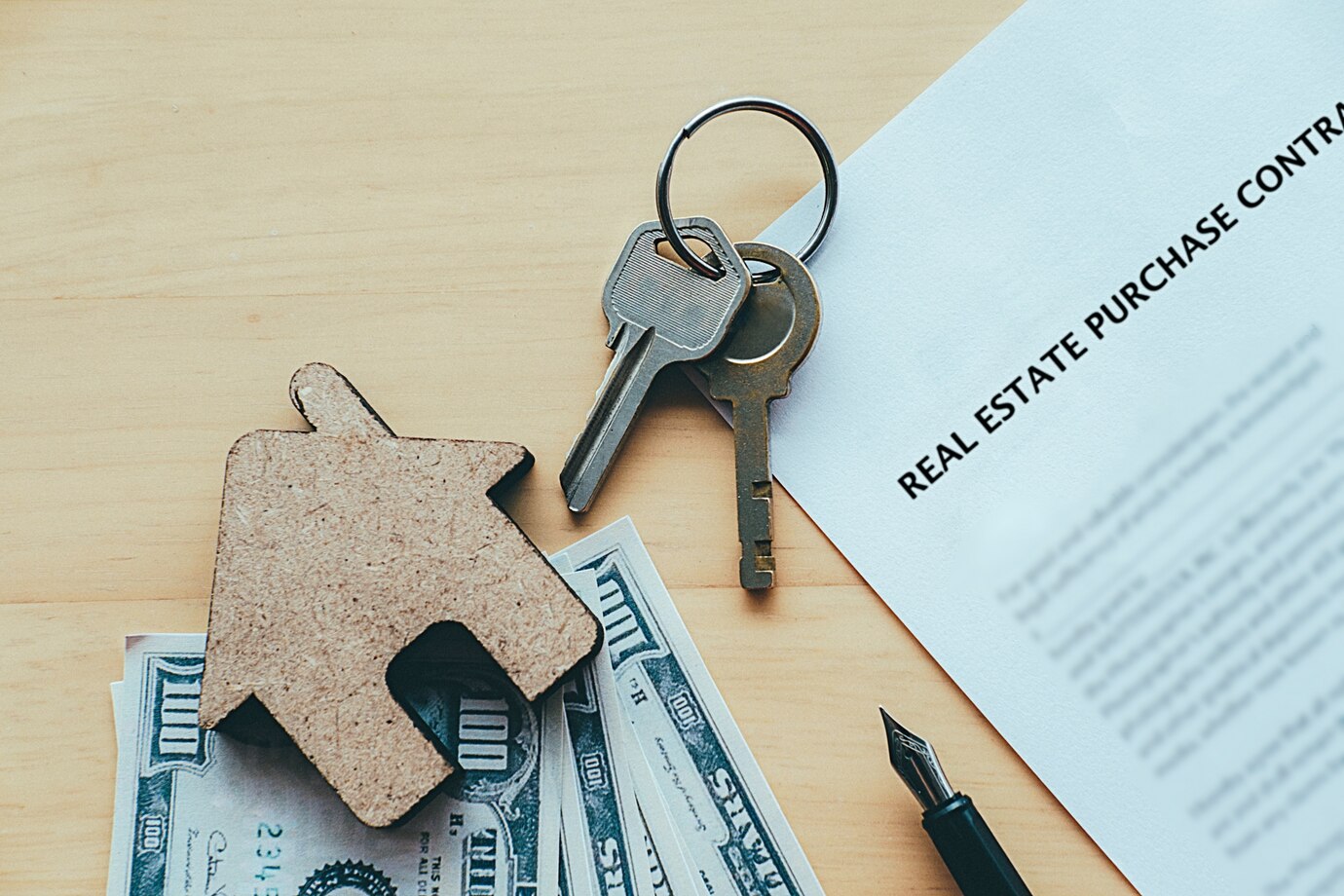
When it comes to choosing a mortgage in Winnipeg, the decision between fixed-rate vs. variable-rate mortgages options can significantly impact your financial future. Fixed-rate mortgages offer stability with consistent payments, while variable-rate mortgages can potentially save you money if interest rates remain low. This article will explore the pros and cons of each option to help Winnipeg homebuyers make an informed decision.
Key takeaways
- Fixed-rate mortgages provide predictable payments and protection against interest rate increases
- Variable-rate mortgages can offer lower initial rates but come with the risk of rate fluctuations
- Winnipeg’s housing market and economic conditions should factor into your mortgage decision
- Your personal financial situation and risk tolerance are crucial in choosing between fixed and variable rates
- Understanding prepayment privileges and penalties is essential for both mortgage types
- Hybrid mortgages combining fixed and variable portions are available in Winnipeg
- Mortgage stress tests apply to both fixed and variable rate mortgages in Canada
Understanding fixed-rate mortgages in Winnipeg
Fixed-rate mortgages are a popular choice for many Winnipeg homebuyers due to their predictability and stability. With a fixed-rate mortgage, your interest rate remains the same for the entire term of your loan, typically ranging from 1 to 10 years in Canada.
Benefits of fixed-rate mortgages for Winnipeg homeowners
One of the main advantages of a fixed-rate mortgage is the peace of mind it offers. Winnipeg residents can budget with confidence, knowing their mortgage payments won’t change even if interest rates rise. This stability can be particularly appealing in a city like Winnipeg, where winters can bring unexpected expenses.
Potential drawbacks of fixed-rate mortgages
While fixed-rate mortgages offer security, they often come with higher initial interest rates compared to variable-rate options. This means you might pay more in interest over the life of your loan if rates remain stable or decrease. Additionally, breaking a fixed-rate mortgage before the term ends can result in substantial penalties, which is worth considering if you think you might need to sell or refinance in the near future.
Exploring variable-rate mortgages in the Winnipeg market

Variable-rate mortgages in Winnipeg are tied to the Bank of Canada’s prime rate. When the prime rate changes, so does your mortgage rate. This can lead to both opportunities and risks for homeowners.
The appeal of variable-rate mortgages
Many Winnipeg borrowers are attracted to variable-rate mortgages because they typically offer lower initial interest rates than fixed-rate options. If interest rates remain low or decrease, you could save a significant amount on interest payments over time. Variable-rate mortgages also often come with more flexible repayment options, allowing you to pay down your mortgage faster without incurring penalties.
Risks associated with variable-rate mortgages
The main risk of a variable-rate mortgage is the potential for rising interest rates. If rates increase, your mortgage payments could go up, potentially straining your budget. This uncertainty can be stressful for some homeowners, particularly in a market like Winnipeg where housing costs have been on the rise in recent years.
Winnipeg’s housing market and its impact on mortgage choices
Winnipeg’s real estate market has its own unique characteristics that can influence your mortgage decision. Understanding these factors can help you make a more informed choice between fixed and variable rates.
Current trends in Winnipeg’s housing market
In recent years, Winnipeg has seen steady growth in home prices, with some neighborhoods experiencing more significant increases than others. This trend can affect your mortgage decision, as rising property values might make a fixed-rate mortgage more appealing for long-term stability.
How Winnipeg’s economy influences mortgage rates
Winnipeg’s diverse economy, with strong sectors in manufacturing, transportation, and healthcare, can impact local mortgage rates. A robust economy might lead to higher interest rates, making a fixed-rate mortgage more attractive. Conversely, economic uncertainty could keep rates low, potentially benefiting those with variable-rate mortgages.
Comparing fixed and variable rates: A Winnipeg perspective
To help you understand the differences between fixed and variable rates in the context of Winnipeg’s market, let’s look at a comparison table:
| Feature | Fixed-Rate Mortgage | Variable-Rate Mortgage |
|---|---|---|
| Interest Rate | Typically higher initially | Often lower to start |
| Payment Stability | Consistent payments | Payments may fluctuate |
| Risk Level | Lower risk | Higher risk |
| Prepayment Flexibility | Usually less flexible | Often more flexible |
| Penalty for Breaking Term | Can be substantial | Generally lower |
| Suitability | Risk-averse borrowers | Those comfortable with some uncertainty |
Factors to consider when choosing between fixed and variable rates
When deciding between a fixed or variable-rate mortgage in Winnipeg, consider the following factors:
- Your financial stability
- Risk tolerance
- Plans for the property (e.g., how long you intend to stay)
- Current economic conditions and interest rate forecasts
- Your ability to handle potential payments increases
The role of mortgage brokers in Winnipeg
Mortgage brokers in Winnipeg can be valuable resources when choosing between fixed and variable rates. They have access to multiple lenders and can provide insights into current market conditions and rate trends specific to the Winnipeg area.
How Winnipeg mortgage brokers can help
Winnipeg mortgage brokers can offer personalized advice based on your financial situation and goals. They can help you compare offers from different lenders, potentially securing better rates than you might find on your own. Additionally, they can explain the nuances of various mortgage products available in the Manitoba market.
Questions to ask your Winnipeg mortgage broker
When consulting with a mortgage broker in Winnipeg, consider asking:
- What are the current fixed and variable rates available?
- How do you expect interest rates to change in the coming years?
- What are the prepayment options for each type of mortgage?
- Are there any special promotions or products tailored to Winnipeg homebuyers?
Understanding mortgage terms and conditions in Manitoba
When comparing fixed and variable-rate mortgages in Winnipeg, it’s crucial to understand the terms and conditions that come with each option. These can vary between lenders and may impact your decision.
Prepayment privileges
Many mortgages in Manitoba offer prepayment privileges, allowing you to make extra payments without penalty. These privileges can help you pay off your mortgage faster and save on interest. Variable-rate mortgages often offer more generous prepayment options, but some fixed-rate products also provide flexibility.
Penalties for breaking your mortgage
If you need to break your mortgage before the term ends, you may face penalties. These are typically higher for fixed-rate mortgages, especially if interest rates have dropped since you secured your loan. Variable-rate mortgages usually have lower penalties, often limited to three months’ interest.
The impact of interest rates on Winnipeg homeowners
Interest rates play a significant role in the Winnipeg housing market and can affect both fixed and variable-rate mortgage holders differently.
How rising rates affect fixed-rate mortgage holders
If you have a fixed-rate mortgage and interest rates rise, you’re protected from payment increases for the duration of your term. This can be a significant advantage in a rising rate environment.
The effect of rate increases on variable-rate mortgages
For those with variable-rate mortgages, rising interest rates mean higher mortgage payments. However, some variable-rate mortgages in Winnipeg offer fixed payment amounts, where the proportion of your payment going towards principal versus interest adjusts as rates change.
Hybrid mortgages: A middle ground for Winnipeg buyers
Some Winnipeg lenders offer hybrid mortgages, which combine elements of both fixed and variable rate products. These can be an attractive option for those who want some stability but also want to benefit from potentially lower variable rates.
How hybrid mortgages work
A typical hybrid mortgage might have a portion of the loan at a fixed rate and another portion at a variable rate. This allows you to hedge your bets, benefiting from the advantages of both types of mortgages.
Pros and cons of hybrid mortgages in Winnipeg
Hybrid mortgages can offer a balance between stability and potential savings, but they can also be more complex to understand and manage. It’s important to carefully consider the terms and how they align with your financial goals.
The importance of the mortgage stress test in Canada

All homebuyers in Winnipeg, regardless of whether they choose a fixed or variable rate mortgage, must pass the mortgage stress test. This test ensures that borrowers can handle potential interest rate increases.
How the stress test affects your mortgage choice
The stress test may influence your decision between fixed and variable rates. If you’re stretching your budget to qualify, a fixed-rate mortgage might be more appealing as it provides certainty about your payments.
Preparing for the stress test as a Winnipeg homebuyer
To prepare for the stress test, consider:
- Paying down existing debts
- Saving for a larger down payment
- Being realistic about the home price you can afford
Refinancing options for Winnipeg homeowners
Whether you initially choose a fixed or variable rate mortgage, it’s important to know that you have options to refinance in the future if your circumstances change or if you want to take advantage of better rates.
When to consider refinancing
You might consider refinancing your Winnipeg mortgage if:
- Interest rates have dropped significantly
- Your credit score has improved
- You want to access home equity for renovations or other expenses
- You’re looking to consolidate high-interest debts
The process of refinancing in Winnipeg
Refinancing in Winnipeg typically involves applying for a new mortgage to replace your existing one. This process is similar to your initial mortgage application and will require a review of your current financial situation.
The psychological factor: Comfort and peace of mind
Your comfort level with financial uncertainty can play a significant role in choosing between fixed and variable rate mortgages. Winnipeg’s sometimes unpredictable weather and economy can make the stability of fixed rates appealing to many homeowners.
Assessing your risk tolerance
Consider how you would feel if your mortgage payments increased due to rising interest rates. If the thought causes significant stress, a fixed-rate mortgage might be the better choice for your peace of mind.
Balancing financial goals with emotional well-being
While it’s important to make a financially sound decision, don’t underestimate the value of feeling secure in your housing costs. A slightly higher rate might be worth it if it allows you to sleep better at night.
Long-term financial planning and your mortgage choice
Your mortgage decision should align with your long-term financial goals. Consider how your choice between fixed and variable rates fits into your overall financial plan.
Integrating your mortgage into your financial strategy
Think about how your mortgage payments fit with other financial objectives, such as saving for retirement, your children’s education, or starting a business. A predictable fixed-rate mortgage might make it easier to plan for these goals.
Flexibility for future changes
Consider potential life changes that might affect your housing needs. If you think you might move or need to refinance in the near future, the typically lower penalties associated with variable-rate mortgages could be advantageous.
The role of economic forecasts in mortgage decisions

While no one can predict the future with certainty, economic forecasts can provide valuable insights when choosing between fixed and variable-rate mortgages in Winnipeg.
Current economic outlook for Winnipeg
Winnipeg’s economy has shown resilience in recent years, with steady growth in various sectors. This stability could influence interest rate trends and, consequently, your mortgage decision.
Using forecasts to inform your choice
Pay attention to economic indicators and forecasts from reputable sources. If most experts predict rising interest rates, a fixed-rate mortgage might be more appealing. Conversely, if rates are expected to remain low or decrease, a variable-rate mortgage could be advantageous.
- According to a report by Zillow, as of January 2021, the average 30-year fixed-rate mortgage was 2.96%, while the average 5/1 adjustable-rate mortgage was 2.71%.
* A study by Freddie Mac shows that from 1990 to 2019, adjustable-rate mortgages (ARMs) had an average initial interest rate that was 1.2 percentage points lower than fixed-rate mortgages.
* An analysis by Realtor.com indicates that in the past, ARMs have been more popular in areas with higher home prices and faster appreciation rates, as borrowers have sought to take advantage of lower initial payments.
* A report by Bankrate suggests that for borrowers who plan to move or refinance within a few years, an ARM could save thousands of dollars in interest payments compared to a fixed-rate mortgage.
* However, the Consumer Financial Protection Bureau (CFPB) warns that ARMs can carry significant risks, including the possibility of payment shock if interest rates rise.
Making the right choice for your Winnipeg home
Choosing between a fixed and variable rate mortgage in Winnipeg is a personal decision that depends on various factors, including your financial situation, risk tolerance, and long-term goals. By understanding the pros and cons of each option and considering how they align with your needs and the local market conditions, you can make an informed decision that sets you up for financial success in your Winnipeg home.
Remember, whether you choose a fixed or variable rate, the most important thing is to ensure that your mortgage is affordable and aligns with your overall financial plan. Don’t hesitate to seek advice from local mortgage professionals who understand the nuances of the Winnipeg market and can provide personalized guidance based on your unique circumstances. Visit our website or contact us!